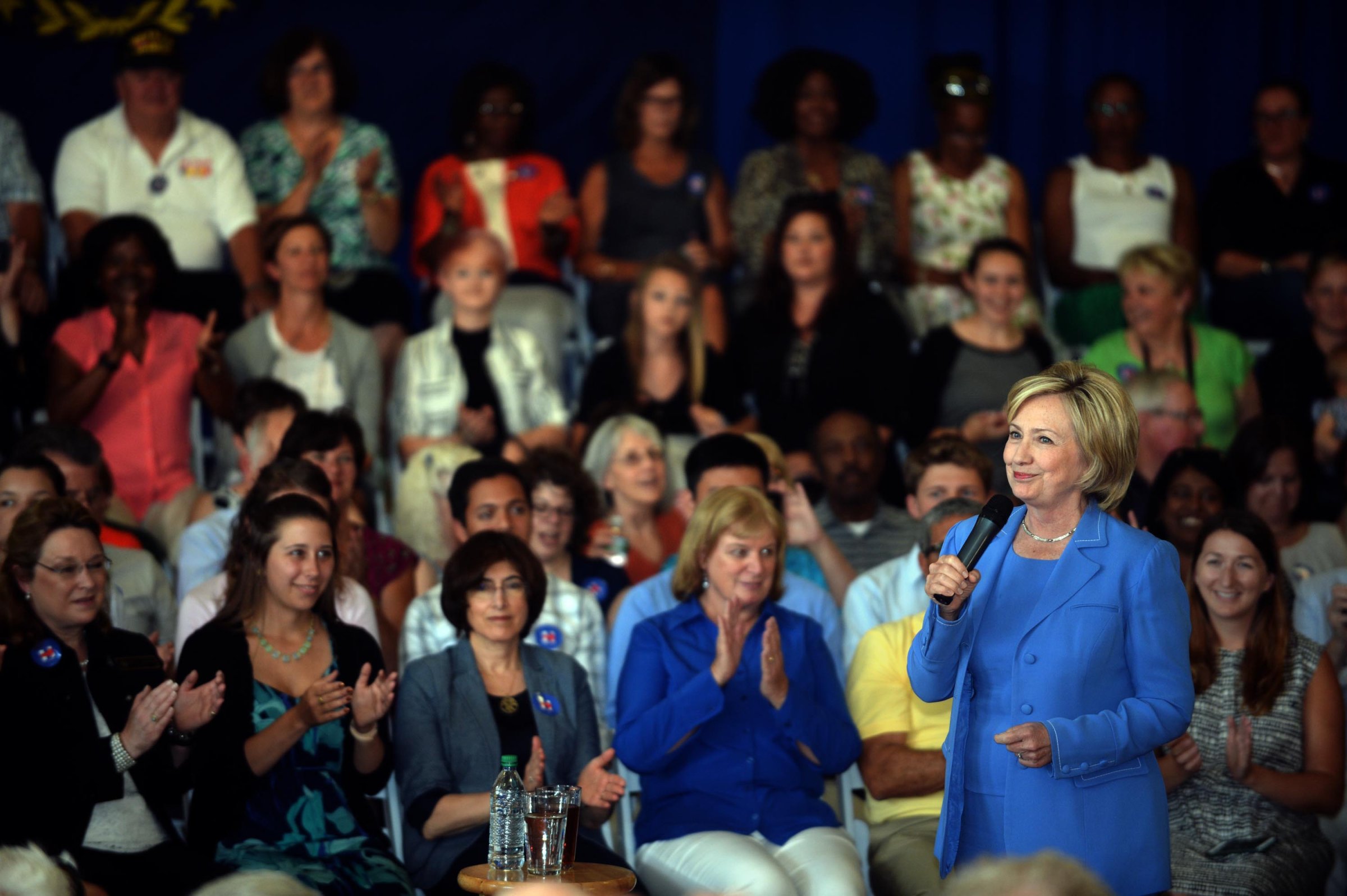
Hillary Clinton had good reason to celebrate Saturday. The American Federation of Teachers, a 1.6-million strong union of teachers, nurses and higher education faculty endorsed her, adding a key working-class voice to a campaign that has so far lacked much overt support from organized labor.
“I’m honored to have the support of AFT’s members and leaders, and proud to stand with them to unleash the potential of every American,” Clinton said in response. “Their voices and the voices of all workers are essential to this country.”
But almost immediately, there was a backlash among teachers in far-flung locals across the states. The AFT’s Facebook page lit up with angry comments from those who favored Vermont Sen. Bernie Sanders instead. Teachers took to Twitter to condemn the endorsement and at least two petitions were circulated online in opposition. Widely read teachers’ blogs published screeds against the decision, calling it rigged in favor of Clinton, a longtime friend of AFT president Randi Weingarten. Though a June poll among AFT members showed a majority supporting Clinton over Sanders, the fervor of those unhappy with the endorsement ran high.
While the AFT blowback may ultimately prove a minor roadbump for Clinton, it reflects a wider unrest among the ranks of organized labor, and one that may be hard for the campaign to shake.
Unhappy with the status quo and uncertain about the future of labor as union membership shrinks, union members across the country are restive over the possibility of their affiliates endorsing Clinton. Many workers see a more natural alliance with Sanders than with Clinton, according to interviews with dozens of union members, from rank-and-file dues-payers to national union presidents.
Sanders took a year off from the University of Chicago in his early 20s and worked for a local union. He strongly opposes the Trans-Pacific Partnership, a trade agreement loathed by labor unions across the country, and supports a $15-minimum wage, free tuition at public universities and curbs on corporate power.
Clinton embraced the Trans-Pacific Partnership as Secretary of State, though she has distanced herself from it as a candidate, saying she would only support it if it met high standards for workers and the environment. On Thursday, Clinton declined to support raising the national minimum wage to $15 an hour, though she is in favor of raising it generally, and has broadly discussed reducing the cost of college education.
For Clinton, the trouble seems to lie in a rift between organized labor’s heart and its head. Activists in a wide array of unions including the American Federation of Teachers, Communication Workers of America, the American Postal Workers Union and the AFL-CIO locals say they are eager to support Sanders. But some of the national leaders are reticent to endorse a candidate like Sanders, who is still considered a long shot in the Democratic primary, and risk losing influence with Clinton down the road or even damaging her candidacy in the general election.
Union leaders “don’t realize how upset rank-and-file membership is and how positively they’re responding to Bernie Sanders’ message,” said David Newby, a former president of the AFL-CIO in Wisconsin. “Clinton’s going to have to be more specific and more hard-hitting than she’s been in the past if she’s going to slow down the rank-and-file momentum towards Bernie.”
“Many of our members have a deep dissatisfaction with both political parties, and the corporate agenda they feel that both the political parties represent,” said Mark Dimondstein, president of the American Postal Workers Union. “In our ranks there’s a lot of interest and excitement for Sanders, and it’s bubbling up.”
Support for Sanders isn’t universal, though, and Clinton has some enthusiastic supporters among both rank and file and leadership. Part of the support is based in the belief that she can defeat a Republican in a general election. Zeph Capo, president of the Houston Federation of Teachers said he admired Clinton’s decision to join the Children’s Defense Fund after graduating college and added he believed Clinton had a much better chance of winning the general election. “I’ll stand by her from now until November and then forward,” he said. International Association of Fire Fighters President Harold Schaitberger said Clinton’s work for public safety officer benefits after 9/11, and her cosponsoring of a collective bargaining bill as New York Senator endeared her to many in his union.
“Hillary Clinton can take the Republicans on in 2016 and win which is critical to protecting working families wages, benefits and rights to collective bargaining and organizing,” said Jesse Ferguson, a spokesman for the Clinton campaign. “She has been a tireless and tenacious fighter for working families all her life and now she’s working hard to earn their support for President.”
See Hillary Clinton's Evolution in 20 Photos

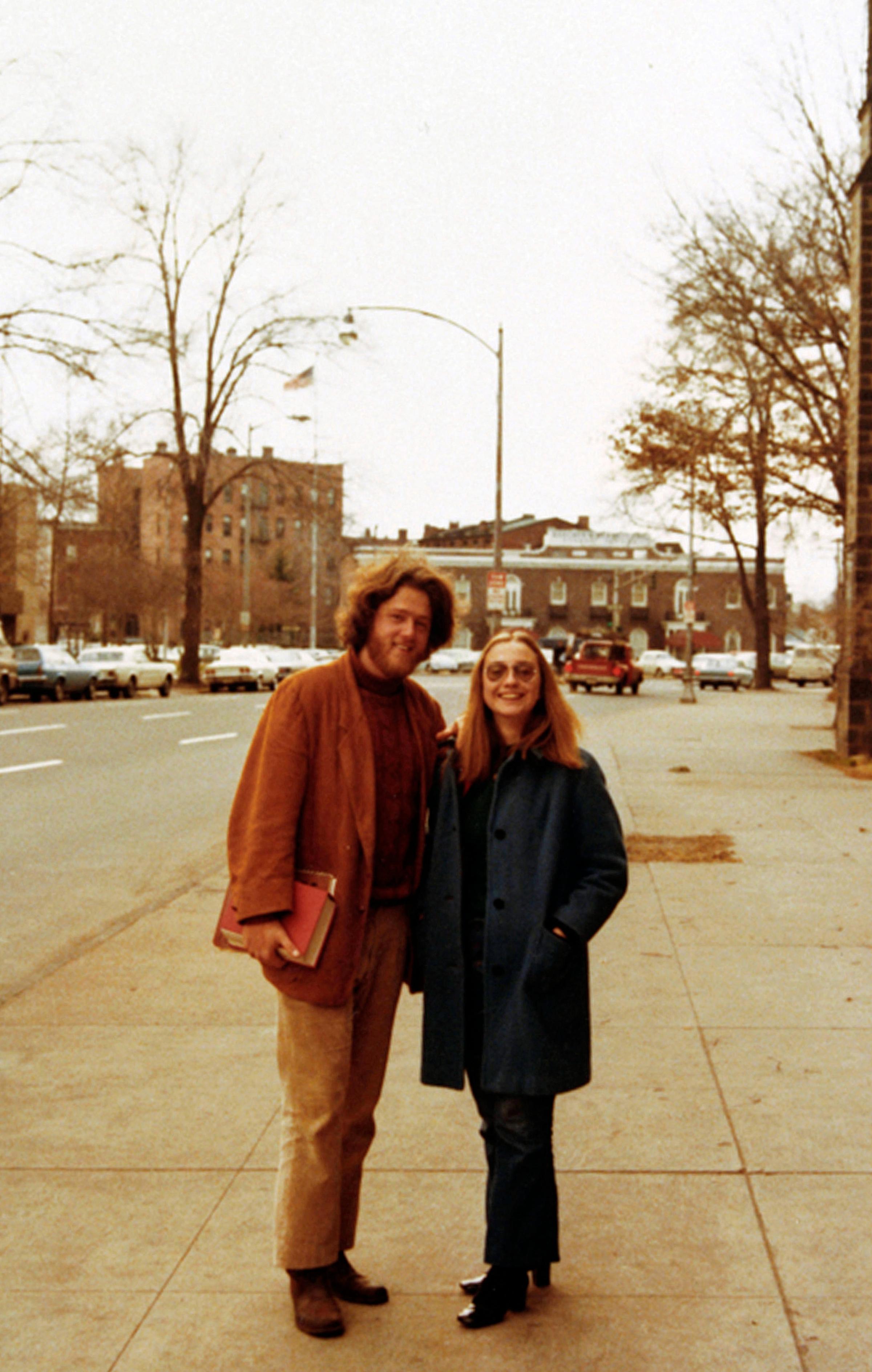
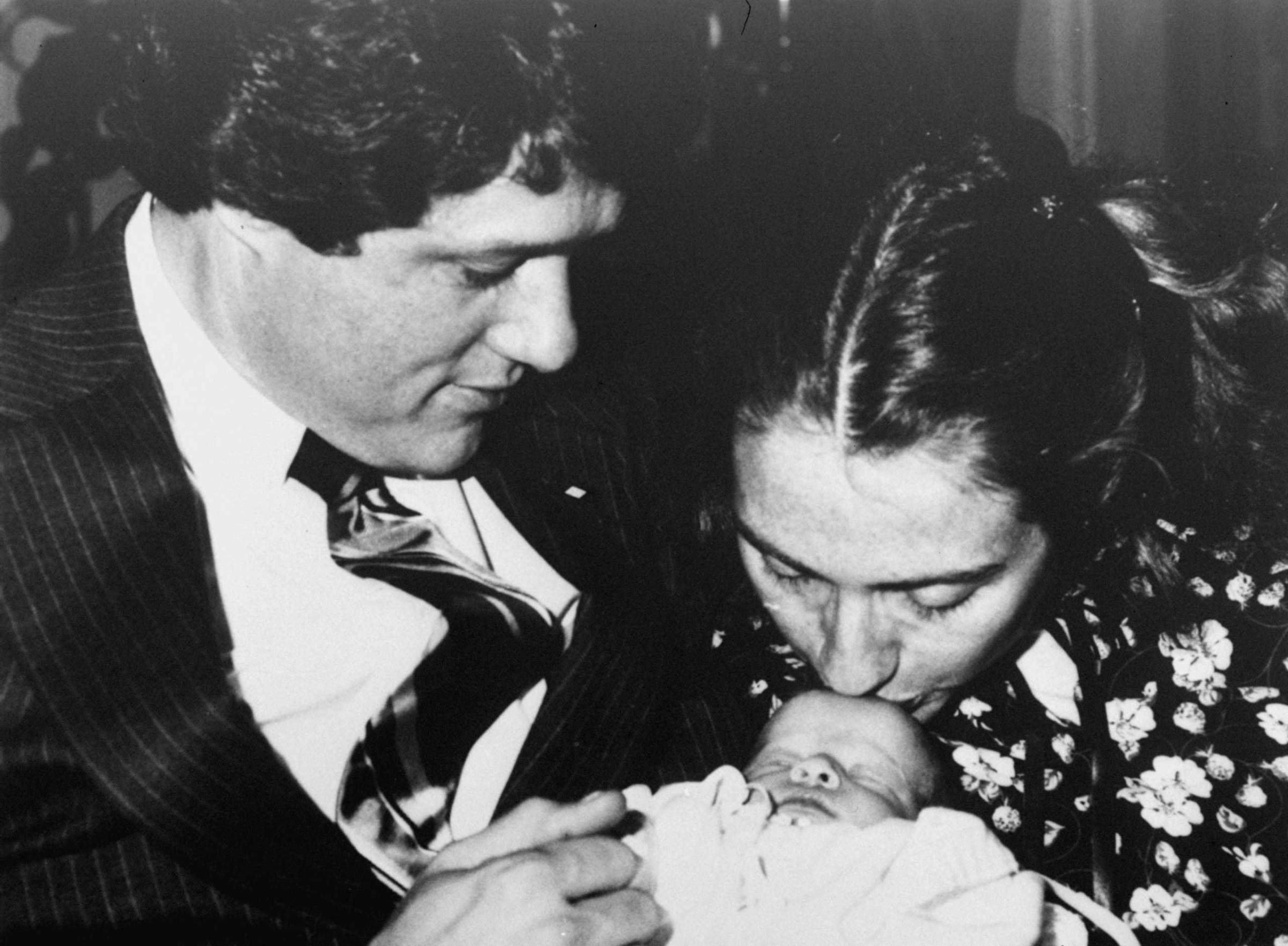
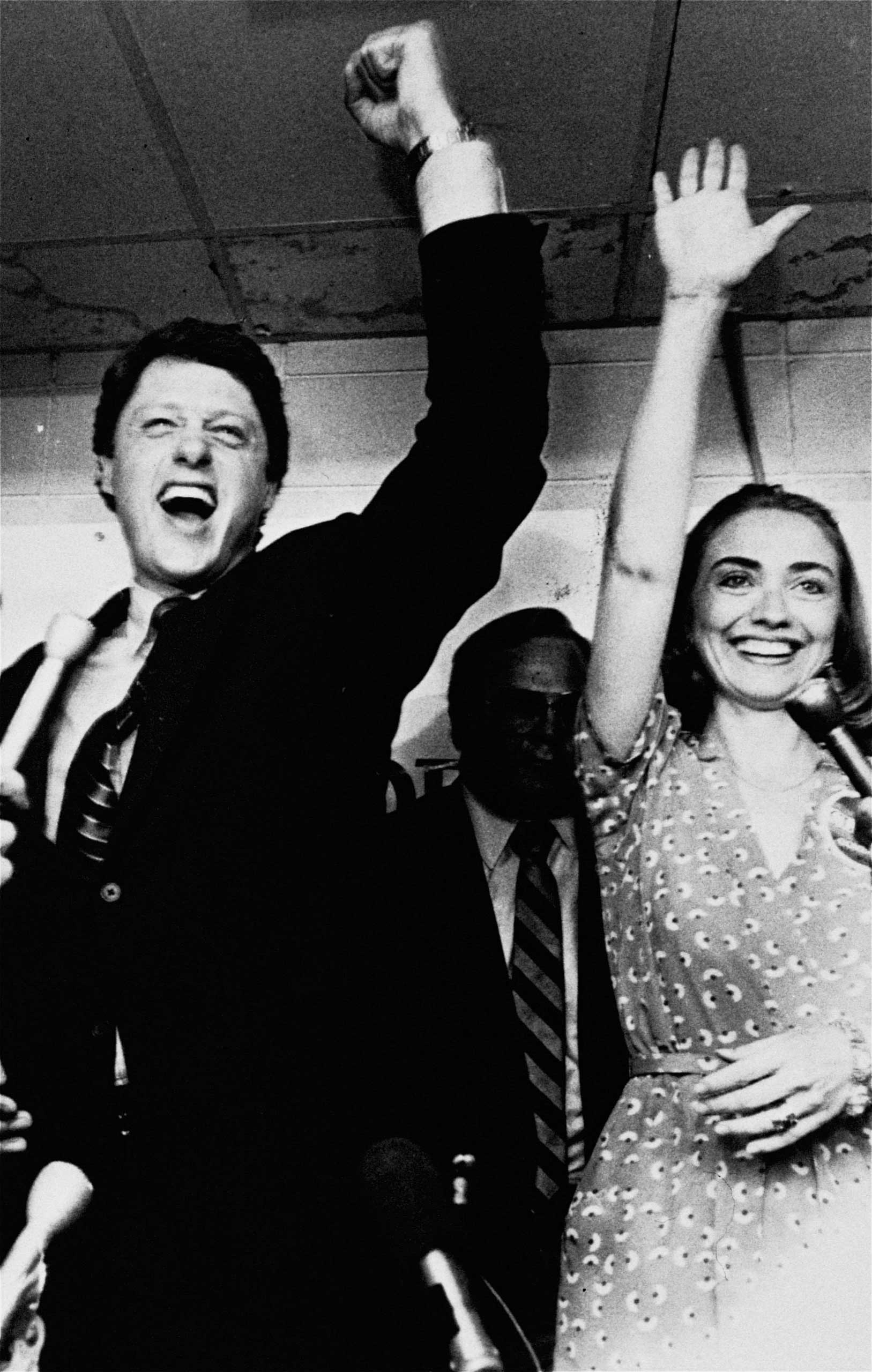

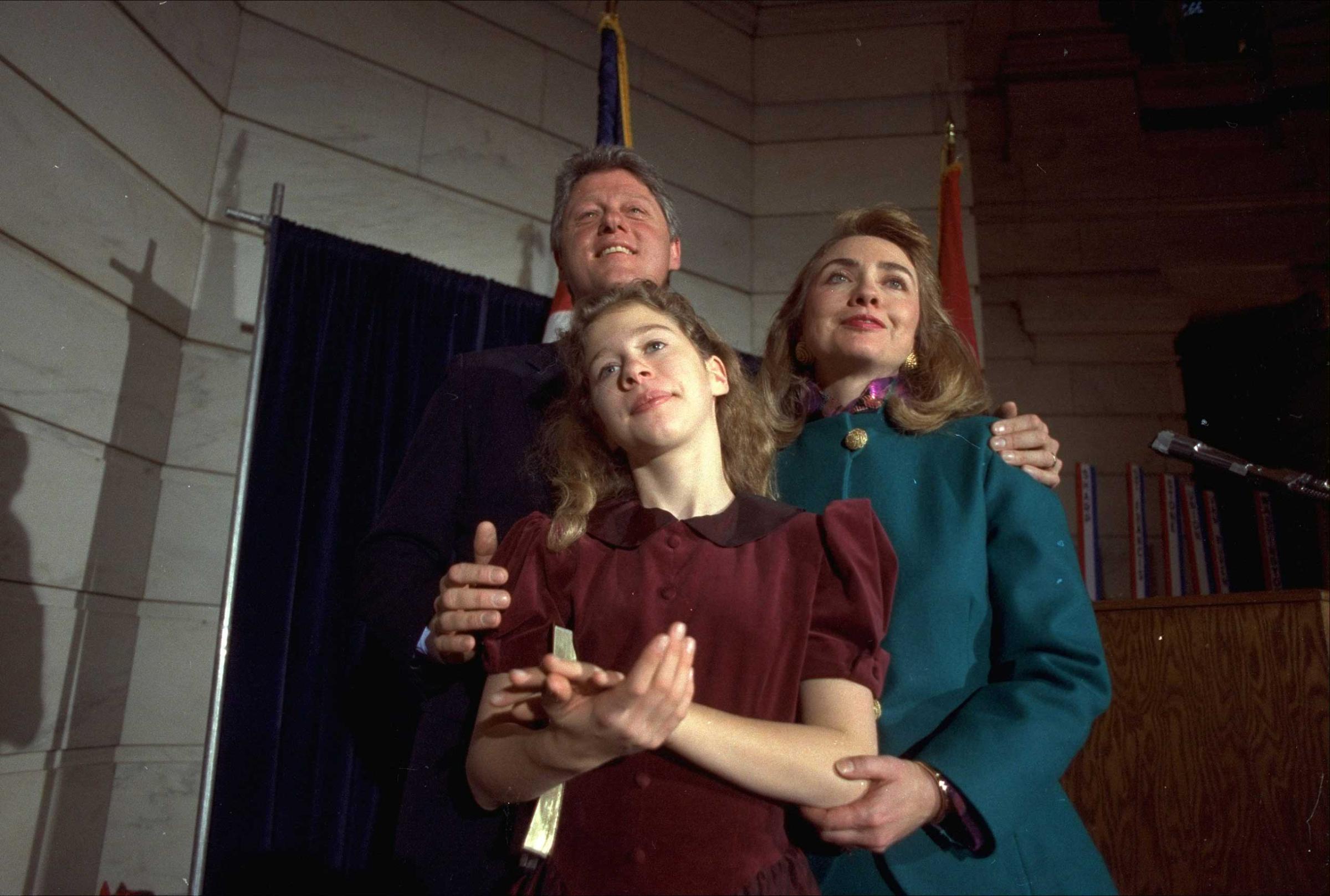
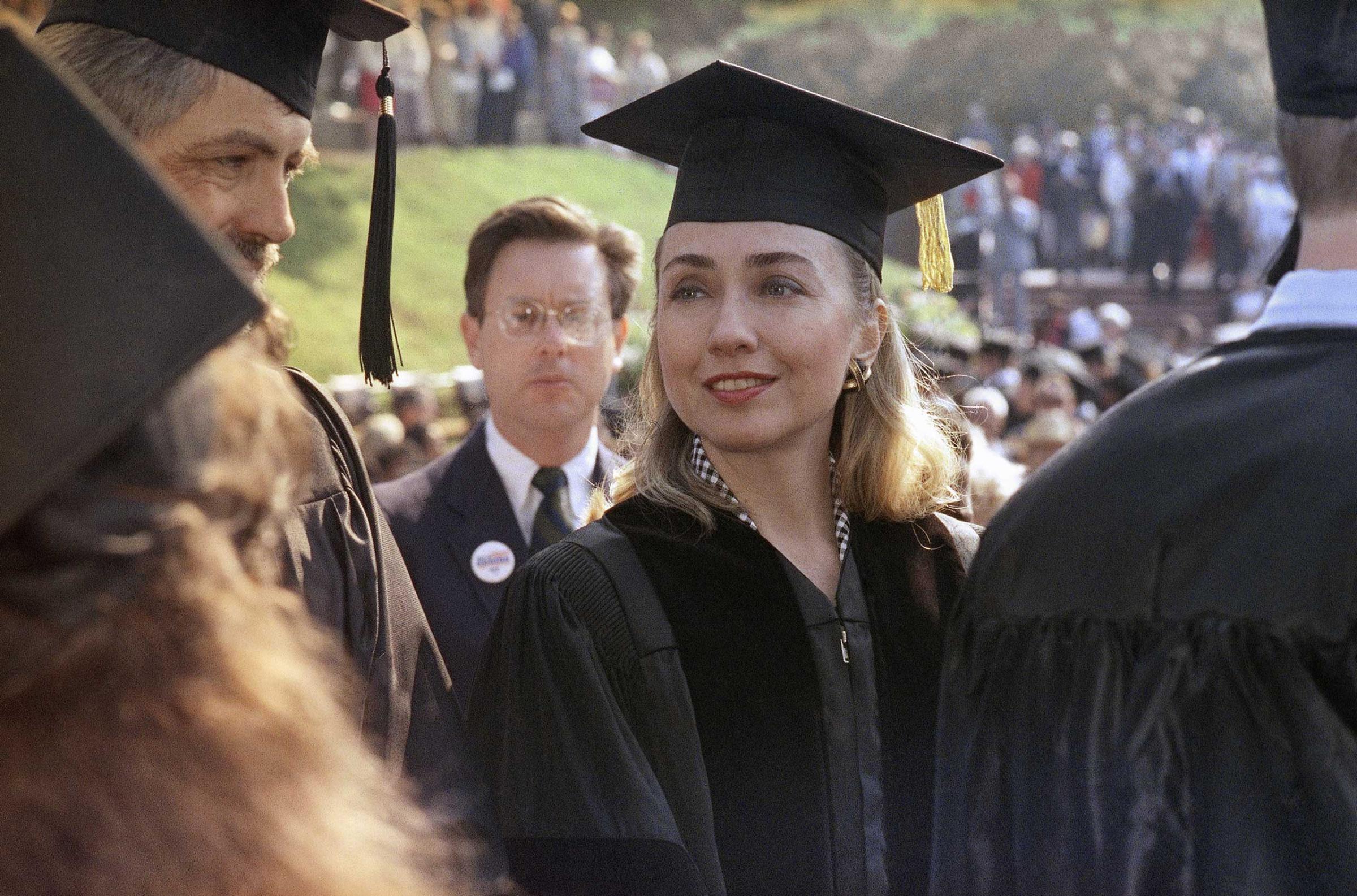
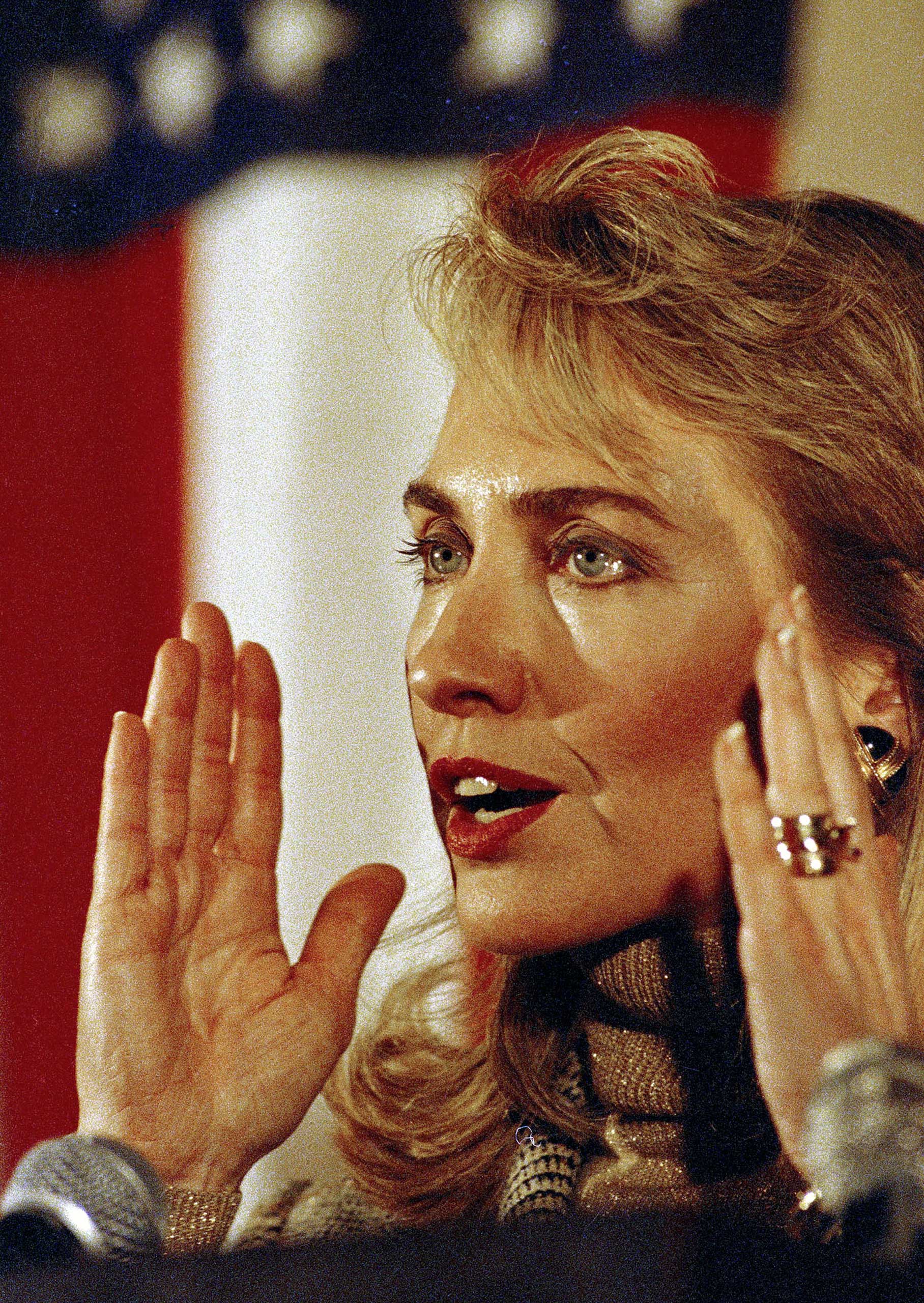
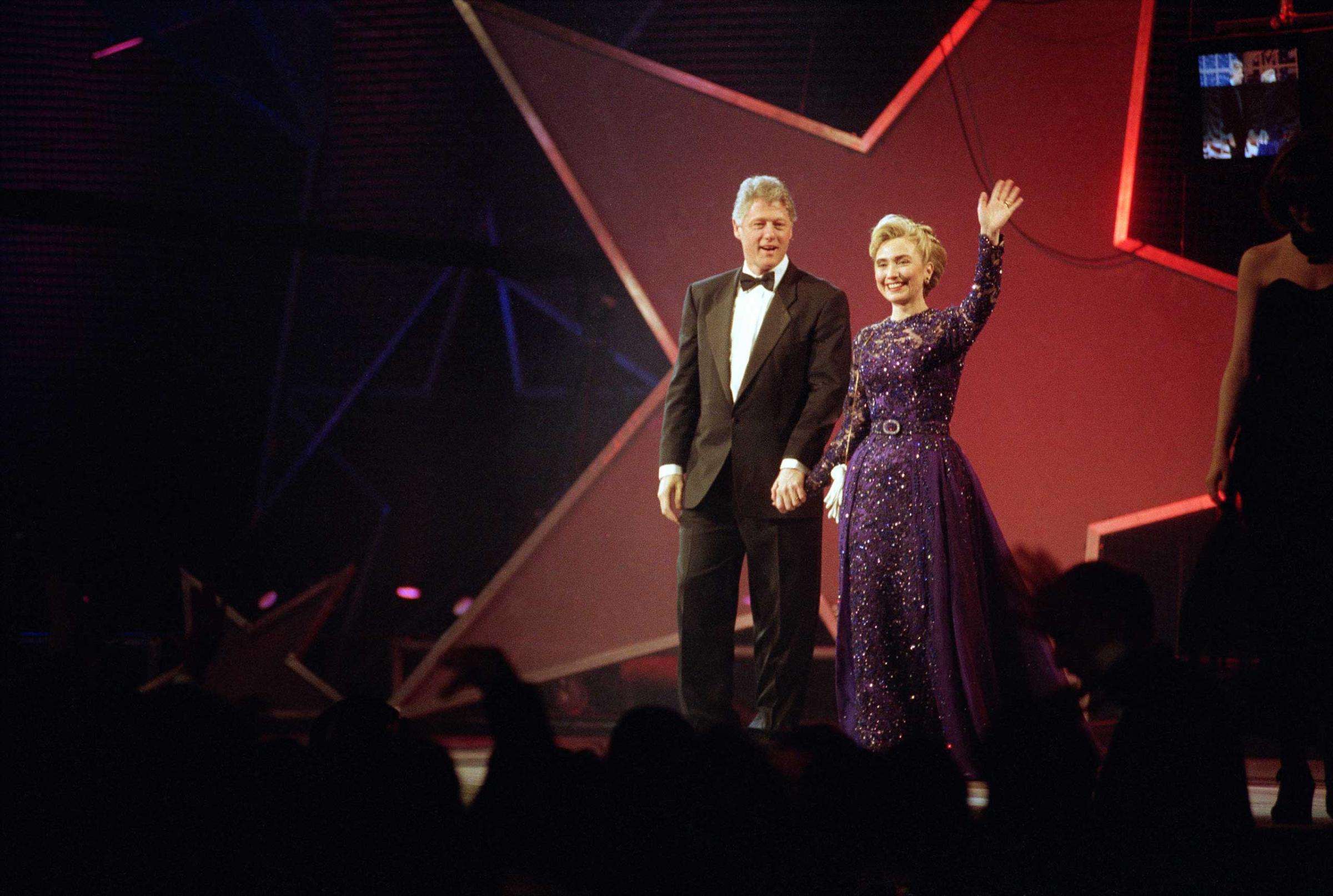
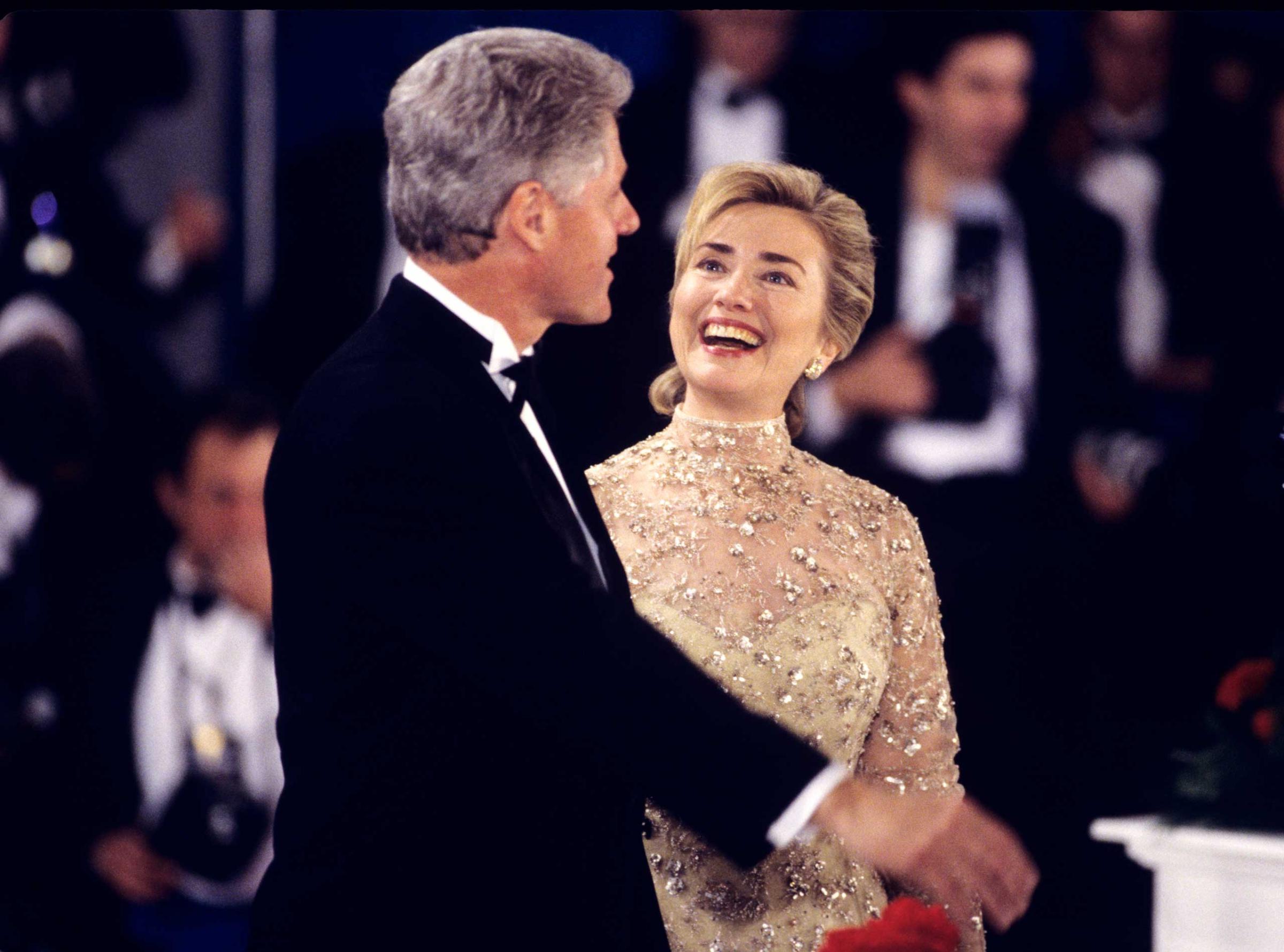
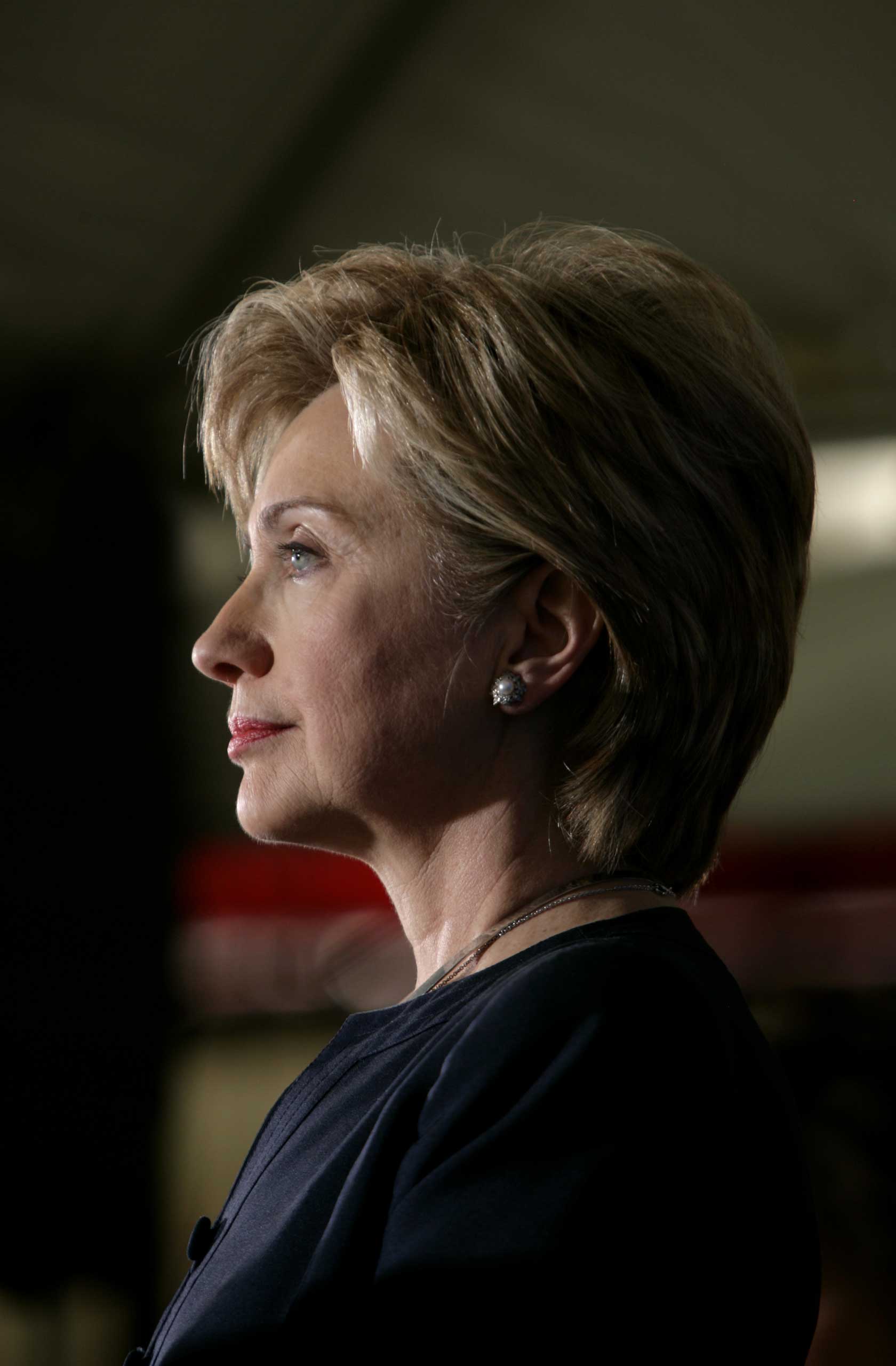
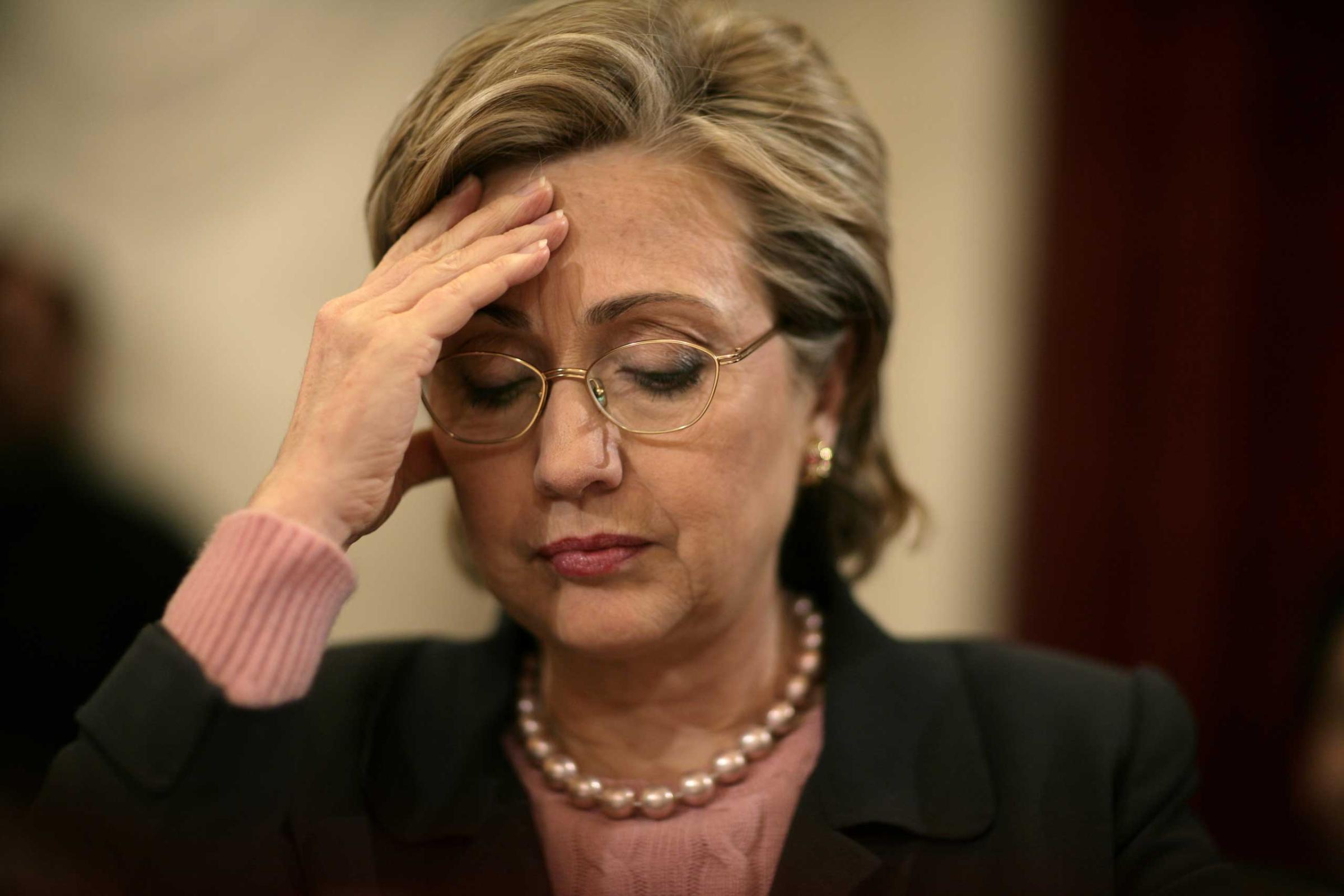
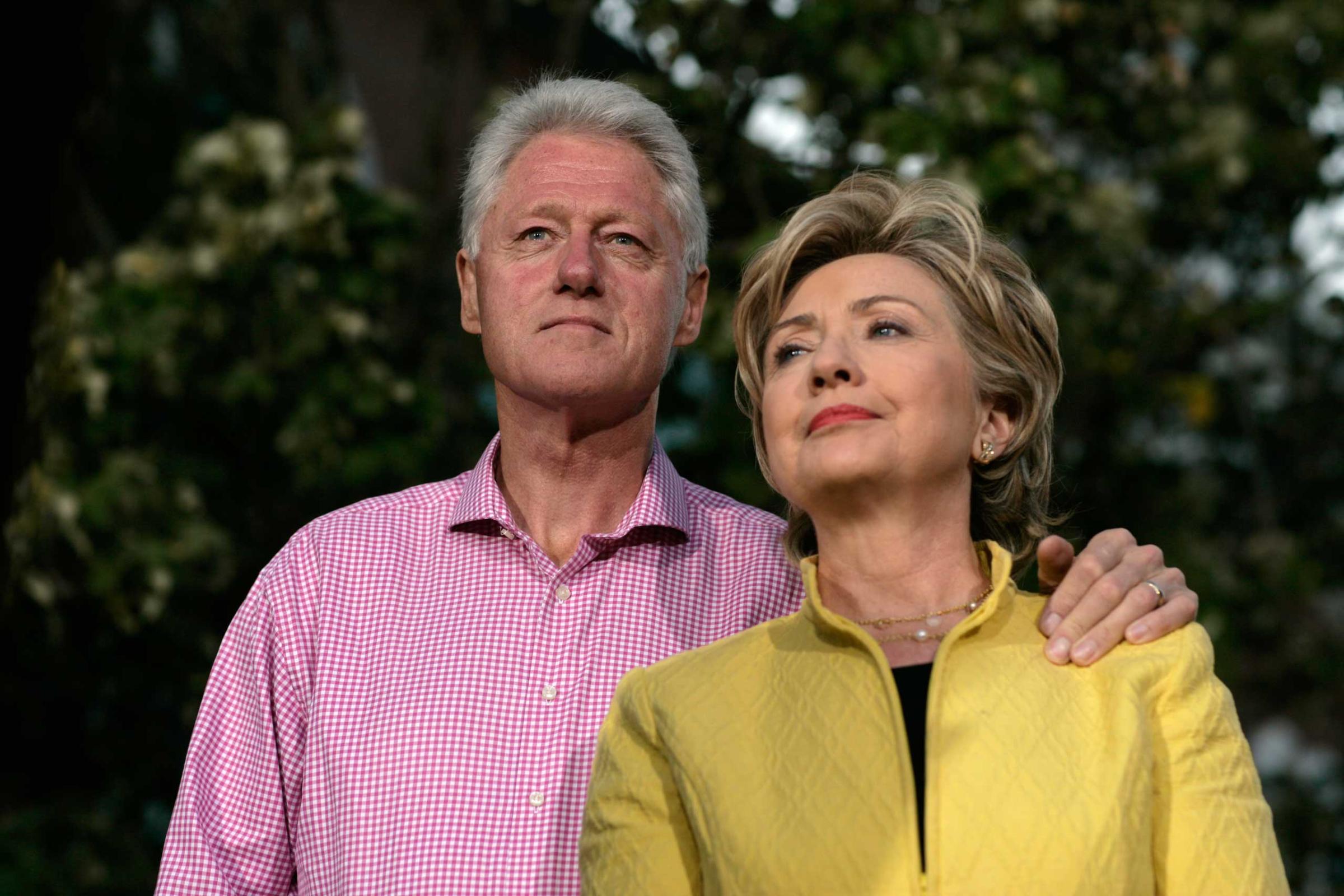
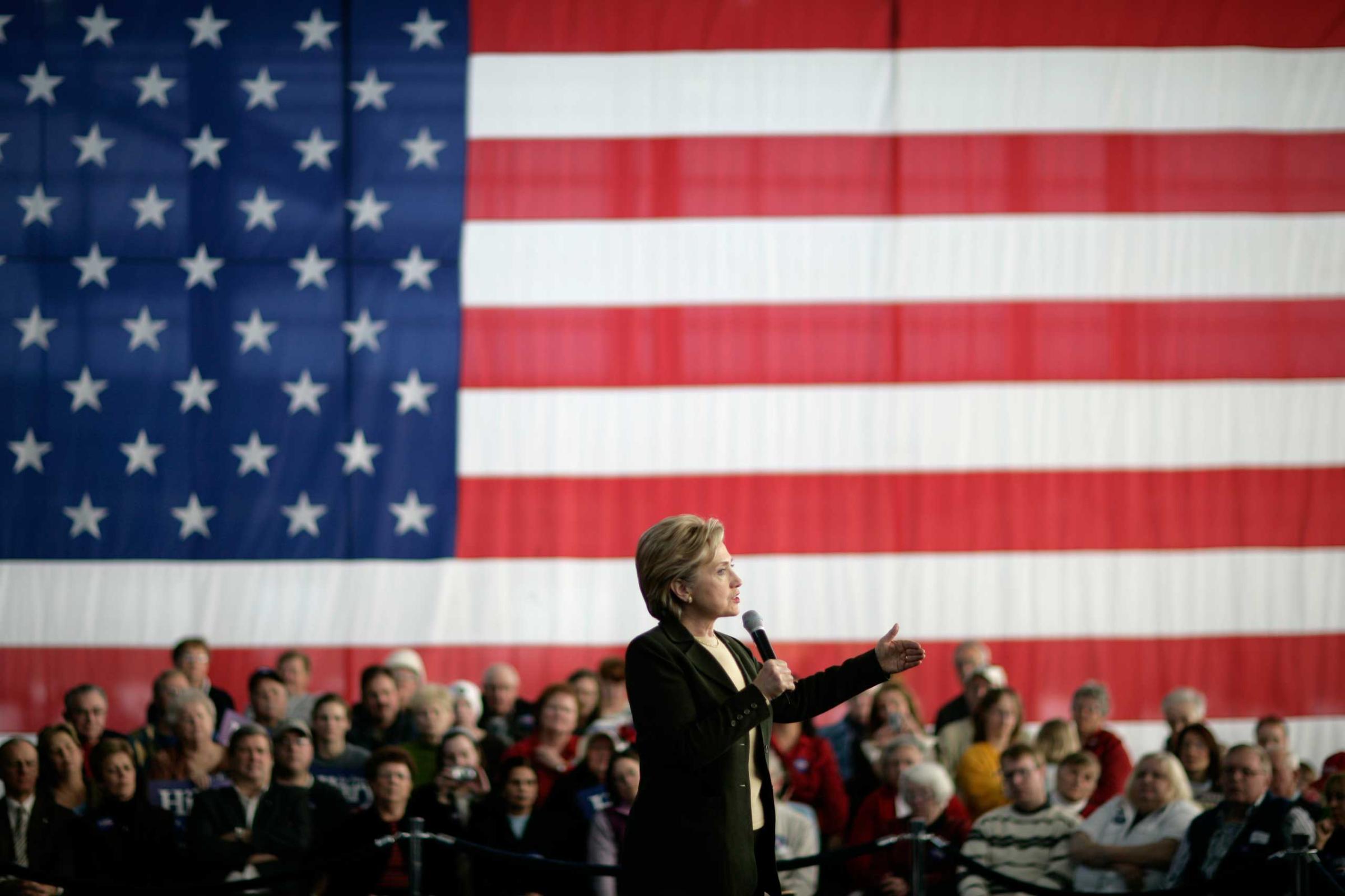
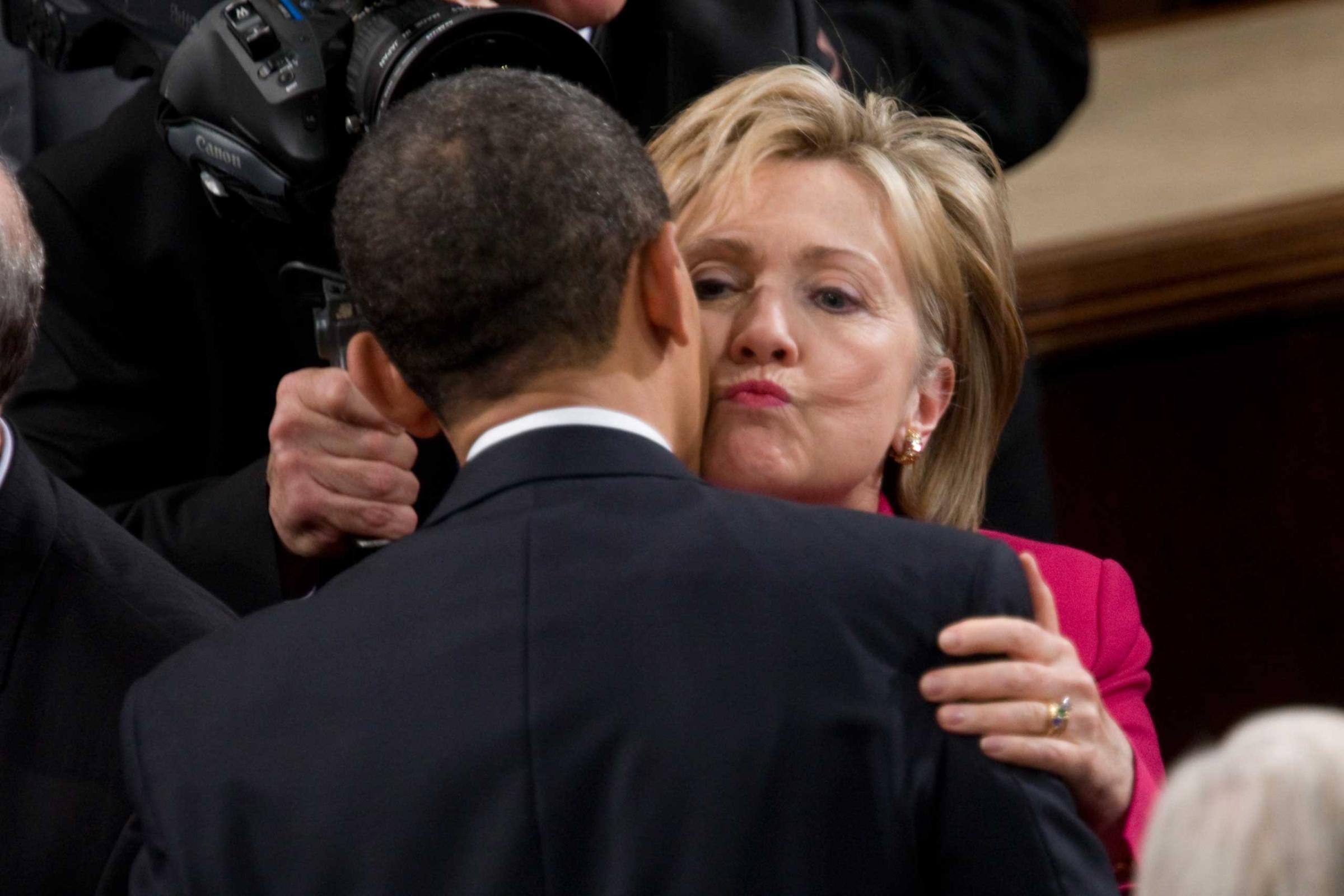
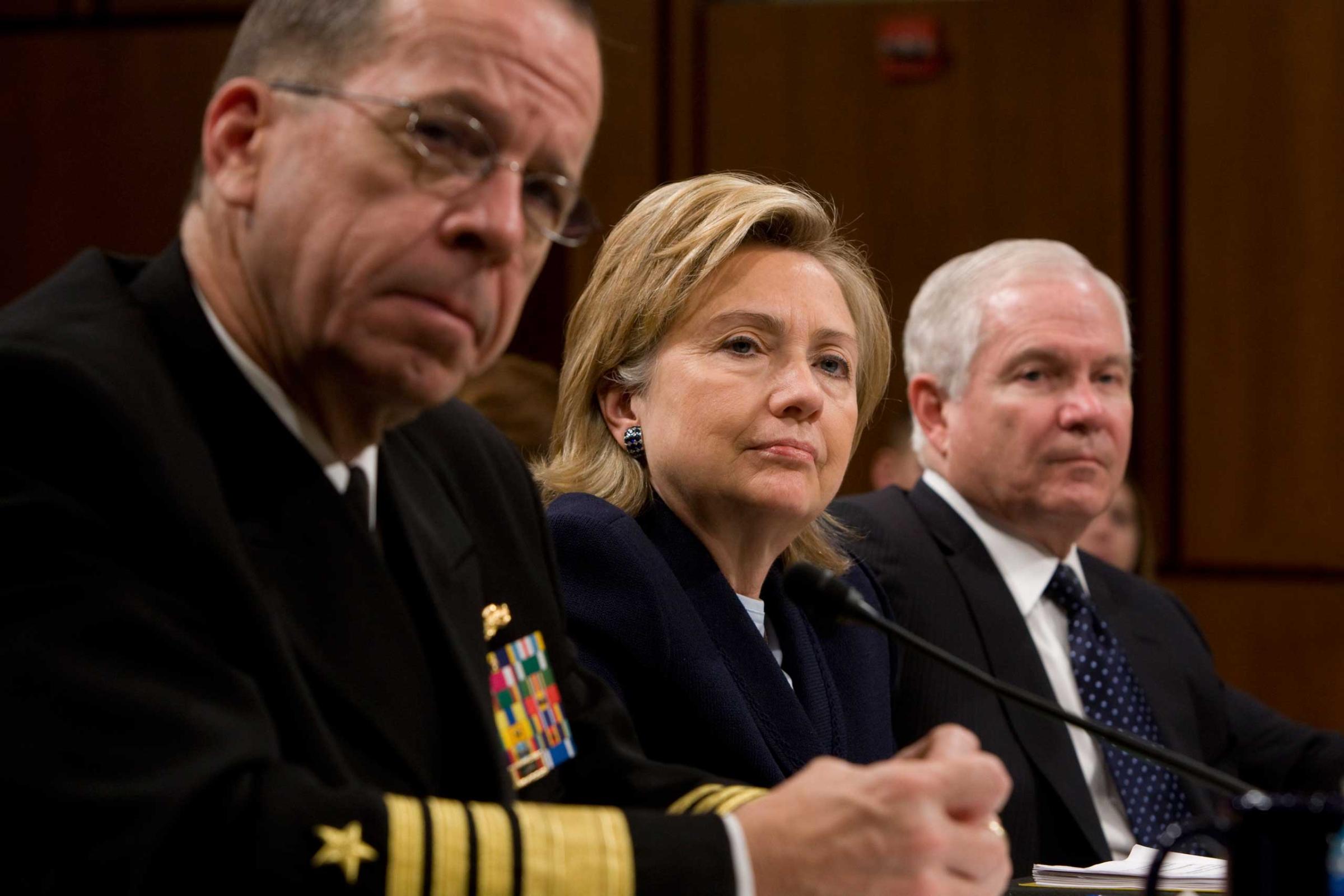
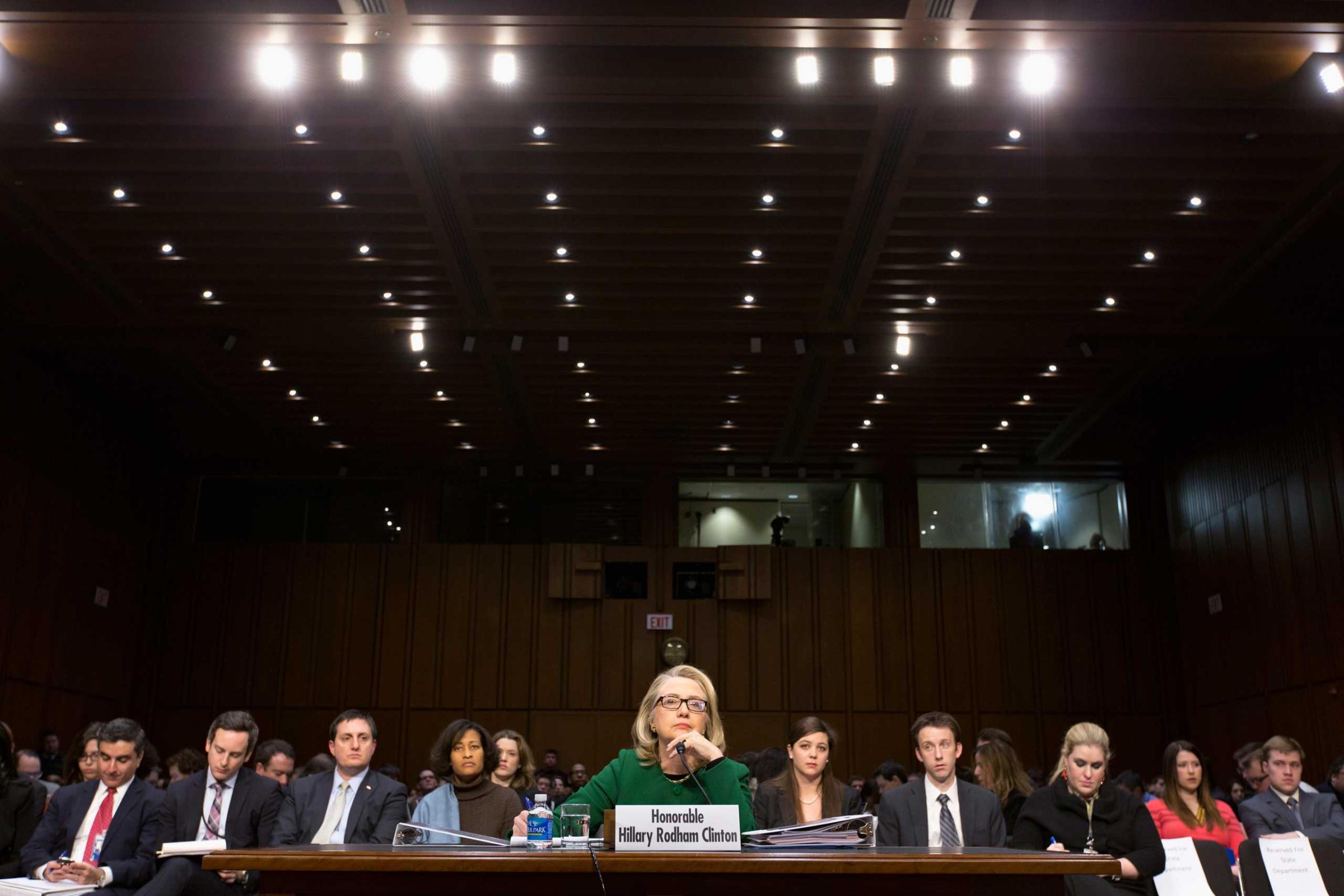
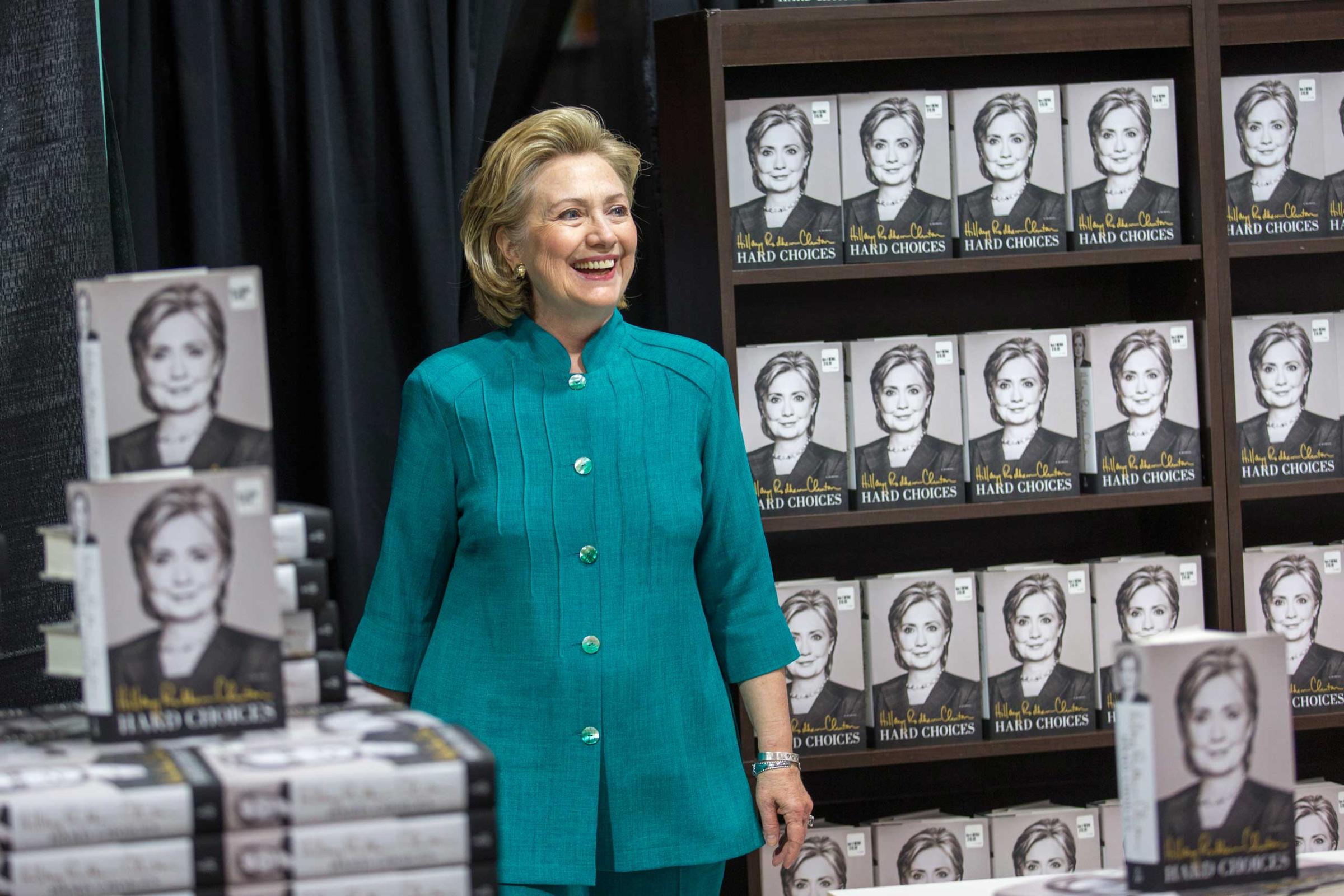
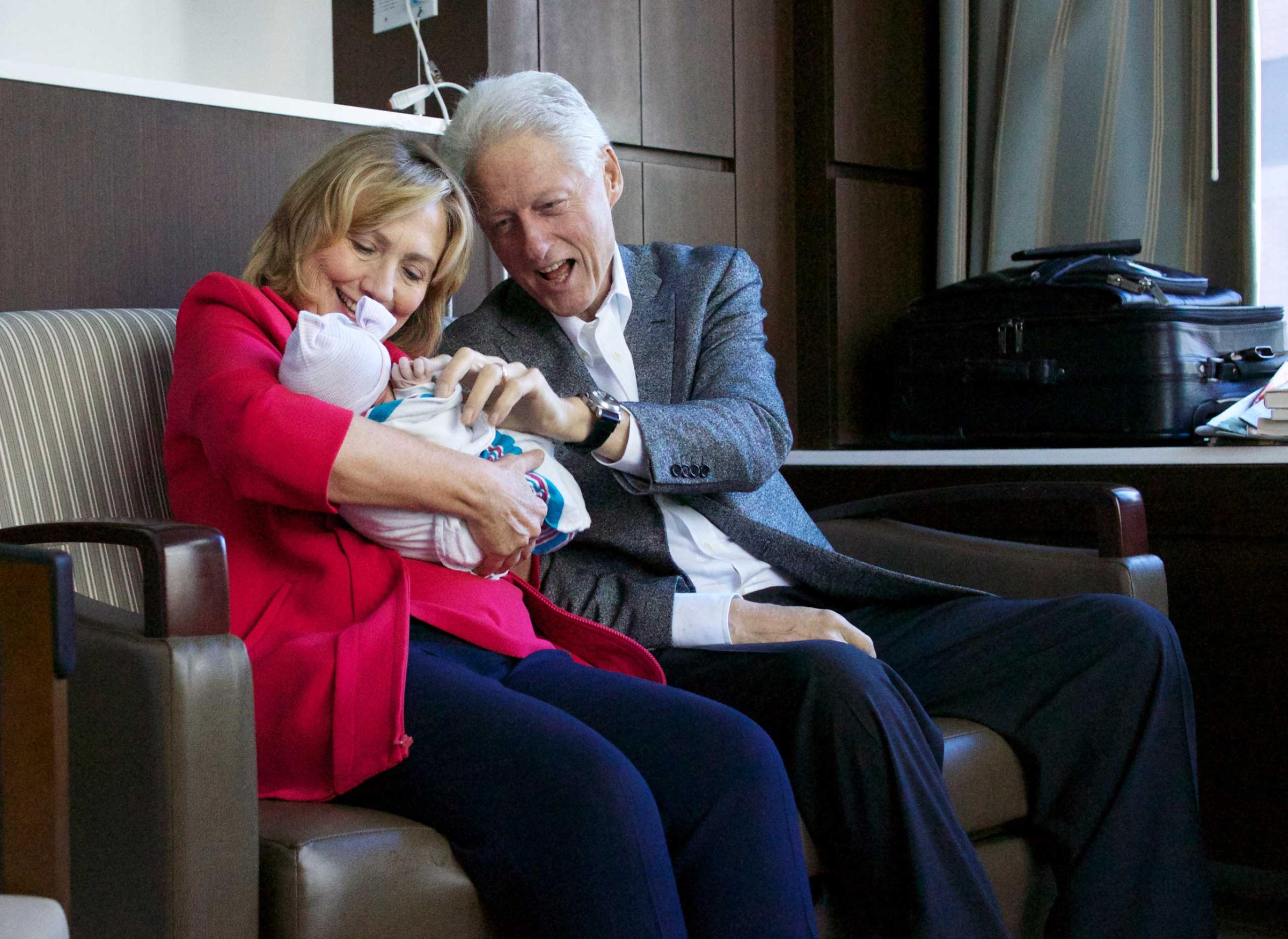
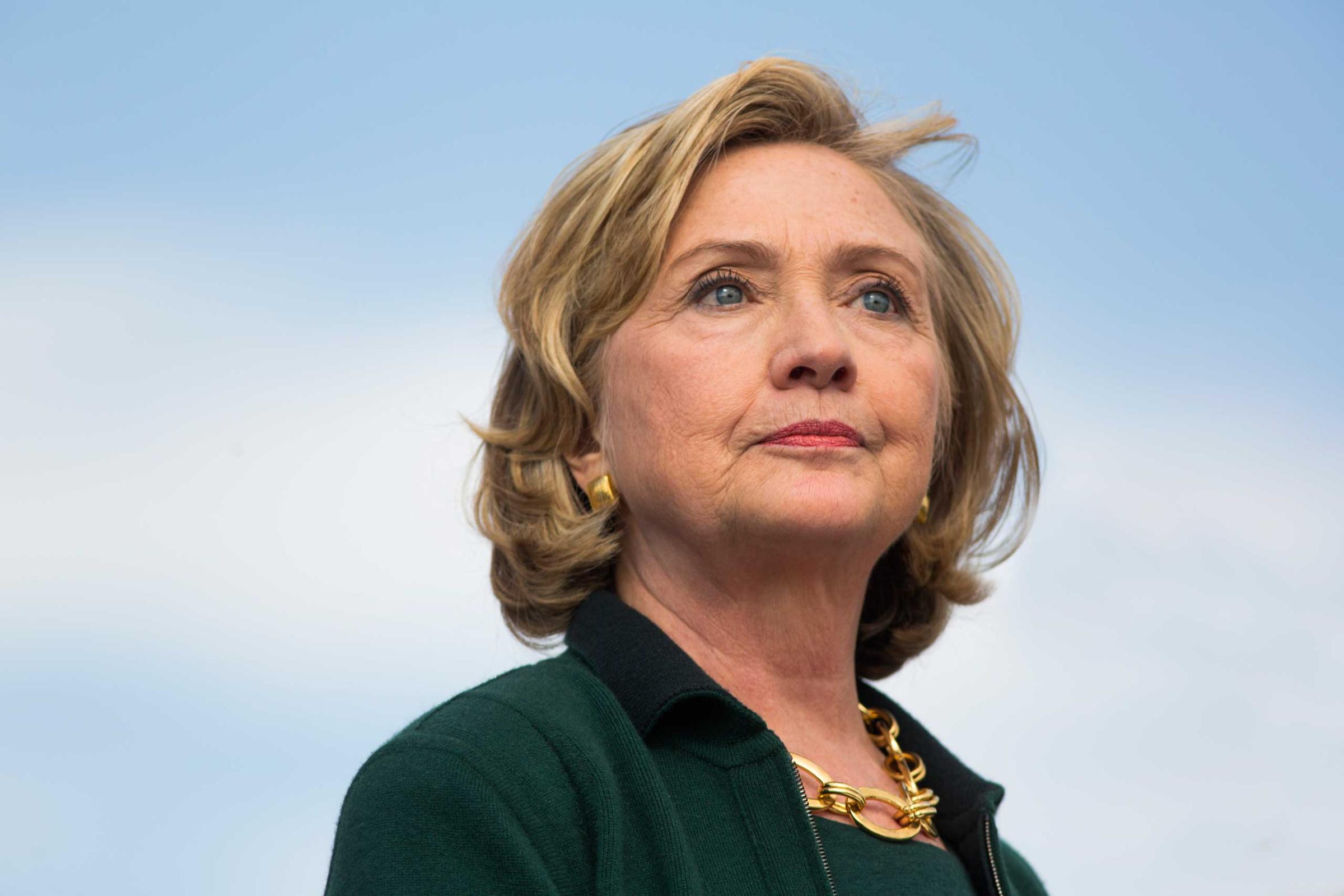
But some of the loudest labor voices are coming from Clinton’s left.
Two AFL-CIO locals in Vermont and South Carolina have passed resolutions supporting Sanders, a petition called “Labor for Bernie” has circulated online and garnered signatures from over 4,000 people. Larry Cohen, the president of the Communication Works of America until last month, has joined as a full-time volunteer for Sanders’ campaign. Citing AFL-CIO rules about early endorsements, several union presidents declined to speak on the record but voiced enthusiasm for Sanders, saying that picking safe, winning candidates over hard-core labor backers has hurt the movement.
Sanders and Clinton have both been making their case to labor. On Monday, Sanders held a private meeting with union leaders at the American Postal Workers Union headquarters in Washington D.C. The next night, many of the same leaders met with Clinton in campaign chairman John Podesta’s home, where Clinton spoke for about 20 minutes and rehashed much of her speech on Monday about her vision for the American economy. According to several people who attended both meetings, Sanders was more specific than Clinton was in addressing labor issues.
MORE: What to Know About Hillary Clinton’s Economic Proposals
“Bernie has complete command of the facts and the need for change,” said Larry Hanley, president of the Amalgamated Transit Union who attended both meetings. “We’re waiting to hear that from Hillary.”
The decision by AFT’s leadership and Weingarten to endorse Clinton early in the primary contest was met with particular vitriol, not just by Sanders supporters but also by union members who felt it was a poor strategic move to endorse so early in the contest.
Around a dozen AFT members, including local board members and local presidents, said in interviews with TIME that they were deeply upset by the early endorsement of Clinton. They said they were broadsided by the endorsement, and many state and local presidents were not aware the AFT was preparing to endorse Clinton until it was announced on Saturday.
“Right now, Sanders is better on our issues than Hillary is,” said Morton Rosenfeld, president of an AFT local in Long Island, New York. “Our goal should be to drive Hillary closer to our position than she already is. That’s the way the politics works.”
In an interview, Weingarten defended the early endorsement of Clinton, saying that a majority of the AFT said they supported endorsing the Democratic frontrunner early in the primary process.
“She shares our values, the sentiment of our members are with her, and she’s clearly best positioned as a Democrat to be elected,” said Weingarten. “We’ve got to win this race.’
Weingarten pointed to a poll of 1,150 randomly selected members from teachers in all the union divisions that showed 67% of members supporting Clinton over Sanders. Weingarten said the support for an early endorsement was “overwhelming.” The executive council of the AFT, which is elected by the locals, voted nearly unanimously in favor of a Clinton endorsement. Weingarten added that by endorsing early, the AFT could control the narrative of the race with a closer link to the campaign.
Among some of the dyspeptic teacher members, however, suspicion lingered over the endorsement, a reflection of some of the alienation among rank-and-file members. They noted that the poll being conducted by Hart Research, a firm led by Clinton allies, and Weingarten’s board membership on Priorities USA, a super-PAC that supports Clinton’s reelection campaign.
The members of the AFT are more naturally aligned with Clinton than those in many other AFL-CIO affiliates. Clinton has long championed early childhood education and supports universal pre-kindergarten, issues particularly important to AFT members. And Clinton’s support as secretary of state for the Trans-Pacific Partnership, which most manufacturing-based labor groups oppose, is less of a concern to a teachers union.
In addition to the AFT, some other union leadership say Clinton’s message resonates. Much of Sanders’ message on the environment and defense spending does not sit well with the International Association of Machinists and Aerospace Workers, for instance, said president Tom Buffenbarger, which represents workers in the defense and forestry products industry.
“We want someone who is seasoned and experienced and has a track record to run on. In all respects that would be Hillary,” said Buffenbarger. He added that he hears from his members so far that they support Clinton.
Richard Trumka, president of the AFL-CIO, has struggled to hold many of the unions in line and stop them from endorsing candidates early. After the South Carolina and Vermont AFL-CIOs passed resolutions supporting Sanders, he circulated a memo reminding the state divisions of the union’s bylaws not to unilaterally “endorse a presidential candidate” or pass resolutions supporting any of them.
Sources say Trumka also privately asked leaders of the affiliate unions—including the AFT—not to endorse a candidate before the end of July, when presidential candidates Clinton, Sanders, former Maryland Gov. Martin O’Malley and former Arkansas Gov. Mike Huckabee, a Republican, meet with union leadership to discuss their platforms. (Update: On July 21, the AFL-CIO tweeted that the AFT endorsement is “playing by the rules.”)
Members of the AFT complained that by endorsing early, they gave up a key tool in pushing Clinton further toward progressive issues. It represents a central concern among labor activists, who want to hold out an endorsement until candidates like Clinton embrace their positions. Without taking a tough line with candidates, the labor movement will continue to decline, several union presidents told TIME.
One unionized teacher in New York who supports Sanders said he had hoped the AFT would hold out an endorsement.
“The AFT is always looking for a seat at the table. But when they get seat at the table, for us teachers, we feel like we’re the dinner,” said Arthur Goldstein, a chapter leader of an AFT affiliate at high school in New York. “We want to build out own table and make the politicians come to us.”
More than anything, the unease reflects anger with President Obama’s push for the Trans-Pacific Partnership and the overwhelming sense among many that unions are losing their political influence.
Labor is searching for a candidate that can buck the trend.
“We are not going to salute the status quo,” said Hanley, president of the transit union. “That is not happening.”
More Must-Reads from TIME
- Why Trump’s Message Worked on Latino Men
- What Trump’s Win Could Mean for Housing
- The 100 Must-Read Books of 2024
- Sleep Doctors Share the 1 Tip That’s Changed Their Lives
- Column: Let’s Bring Back Romance
- What It’s Like to Have Long COVID As a Kid
- FX’s Say Nothing Is the Must-Watch Political Thriller of 2024
- Merle Bombardieri Is Helping People Make the Baby Decision
Contact us at letters@time.com